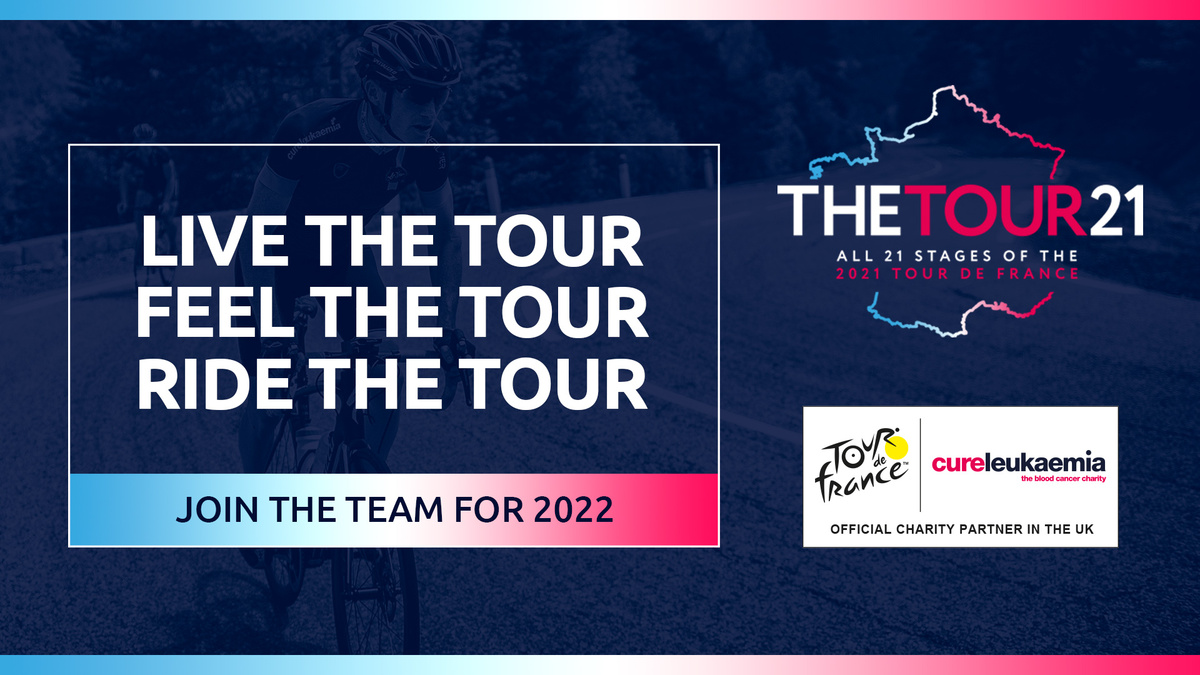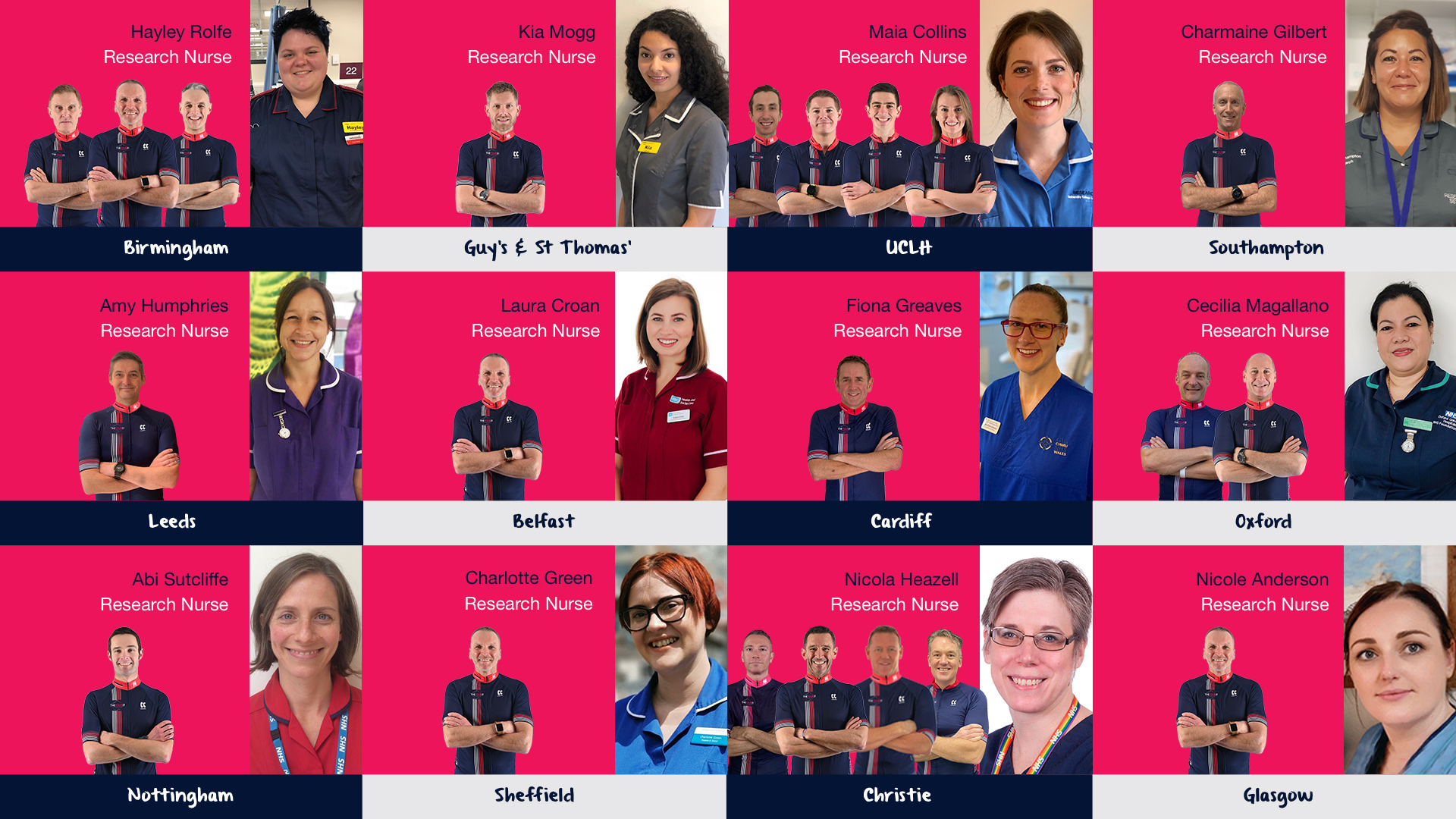The Tour 21
The Tour 21 team are riding the full Tour de France route, one week ahead of the professionals, to raise over £1m for Cure Leukaemia, the Official Charity Partner of Tour de France in the UK | Led by Geoff Thomas MBE | June 19 - July 11
Our campaign is now complete. 7437 supporters helped us raise £1,120,815.00
Visit the charity's profileThe Tour 21 team are riding the full Tour de France route, one week ahead of the professionals, to raise over £1m for Cure Leukaemia, the Official Charity Partner of Tour de France in the UK | Led by Geoff Thomas MBE | June 19 - July 11
The Tour 21 · 19 June 2021 to 11 July 2021 ·
Closed 23/07/2024
The campaign has now expired but it's not too late to support this charity.
Visit the charity's profileThe Tour 21 cycling team have done it!
Our 18 riders have hit their target and raised a remarkable £1m for Cure Leukaemia by riding all 21 stages of the world-famous Tour de France.

Thanks to everyone who has donated, your generosity means we can help the prospects of blood cancer patients by funding more nurses and running more clinical trials through the Trials Acceleration Programme (TAP) network of 12 centres across the UK.

We have places available for The Tour 21 in 2022 and 2023, meaning you too can take on the route of the Tour de France, the world's most watched sporting event, with 2.3 billion viewers each year.
But you'll have to move quickly as spots are limited to 25 in 2022 and 25 in 2023.
Please register your interest about The Tour 21.
As we build up to the 2022 edition of the event, check out the latest news, updates, videos and pictures across our social media channels.
We teamed up with NBC Sports throughout The Tour 21 as they released a five-part documentary to their 1.6m YouTube audience before it hits TV screens in the US later this year.
It was called Riding for Survival and focused on the challenge of taking on the world's most watched sporting event, with 2.3 billion annual viewers as well as the inspirational blood cancer survival story of team captain Geoff Thomas.
Check out all 5 Episodes.
It really sets the scene for the magnitude of what's been taken on.
We also teamed up with Eurosport, who covered the event in a three-part series on their GCN Cycling Show.

All funds raised from this event will be invested directly into the national Trials Acceleration Programme (TAP) network which Cure Leukaemia began funding from January 2020.
The nationwide expansion of Cure Leukaemia will see the charity invest £3m from 2020-22 in order to fund specialist research nurses and clinical roles in 12 blood cancer centres across the United Kingdom allowing them to open and run clinical trials for pioneering treatments for the disease. Patients from an increased catchment area of over 20 million people will have access, as a result, to potentially life-saving treatments not currently available through standard care.
Charities pay a small fee for our service. Learn more about fees